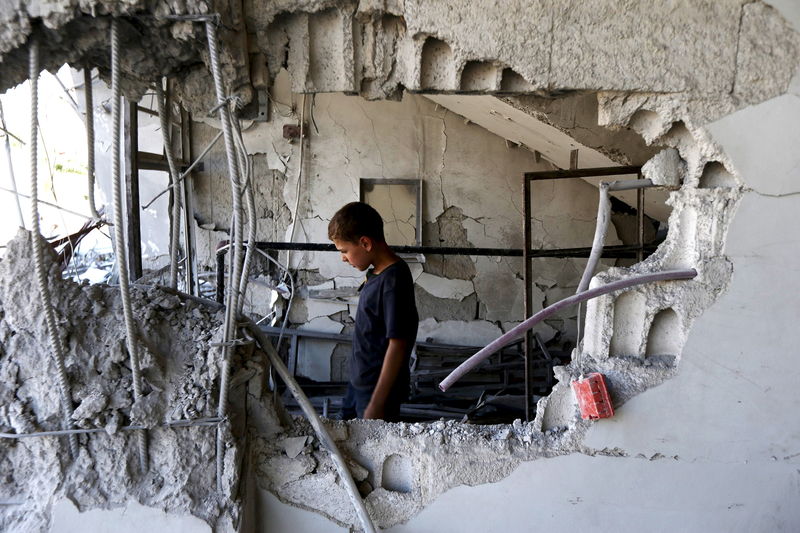BEIRUT (Reuters) - The United Nations envoy for Syria said Syrian air strikes on had caused an unprecedented level of death and destruction in the city of Zabadani, the focus of an offensive by the army and Lebanon's Hezbollah to retake the area from insurgents.
Citing local sources in a statement late on Tuesday, Staffan de Mistura said the Syrian military had dropped a large number of barrel bombs on Zabadani "causing unprecedented levels of destruction and many deaths among the civilian population."
Control of the city, about 45 km (30 miles) northwest of the capital Damascus and about 10 km from the border with Turkey, is seen as crucial to consolidating President Bashar al-Assad's control over the border zone between Lebanon and Syria.
Fierce clashes continued overnight in the Zabadani area amid heavy aerial bombardment in and around the city, with reports of casualties on both sides, the Syrian Observatory for Human Rights monitoring group said on Wednesday, without giving detailed figures.
Syrian state television said in a news flash that the army had destroyed a 70 metre-long (77 yards) tunnel used by the insurgents to transport equipment into Zabadani.
The Syrian air force has been bombarding areas in and around the city and Sunni insurgents have retaliated by firing rockets and heavy mortar shells on two villages near Idlib city in the north, the U.N. envoy de Mistura said.
An alliance of insurgents known as the "Army of Fatah" (Islamic Conquest) had targeted Al Foua and Kefraya, northern villages where a large number of civilians are trapped, he said.
"In both cases, civilians are tragically caught in the middle of the fighting," he added. Al Foua and Kefraya are home to Shi'ite populations.
Earlier this week the Syrian army backed by Hezbollah advanced deeper into Zabadani, two weeks into a campaign to capture it from insurgents, rebels and the army said.
Taking Zabadani from the insurgents would be a strategic gain for the Syrian army which is battling on several other fronts with a range of different insurgent groups.

Hezbollah's military role inside Syria has been growing steadily since the start of the conflict in 2011. The Syrian government has described the group as its main ally in the fight against the insurgents battling to topple Assad.